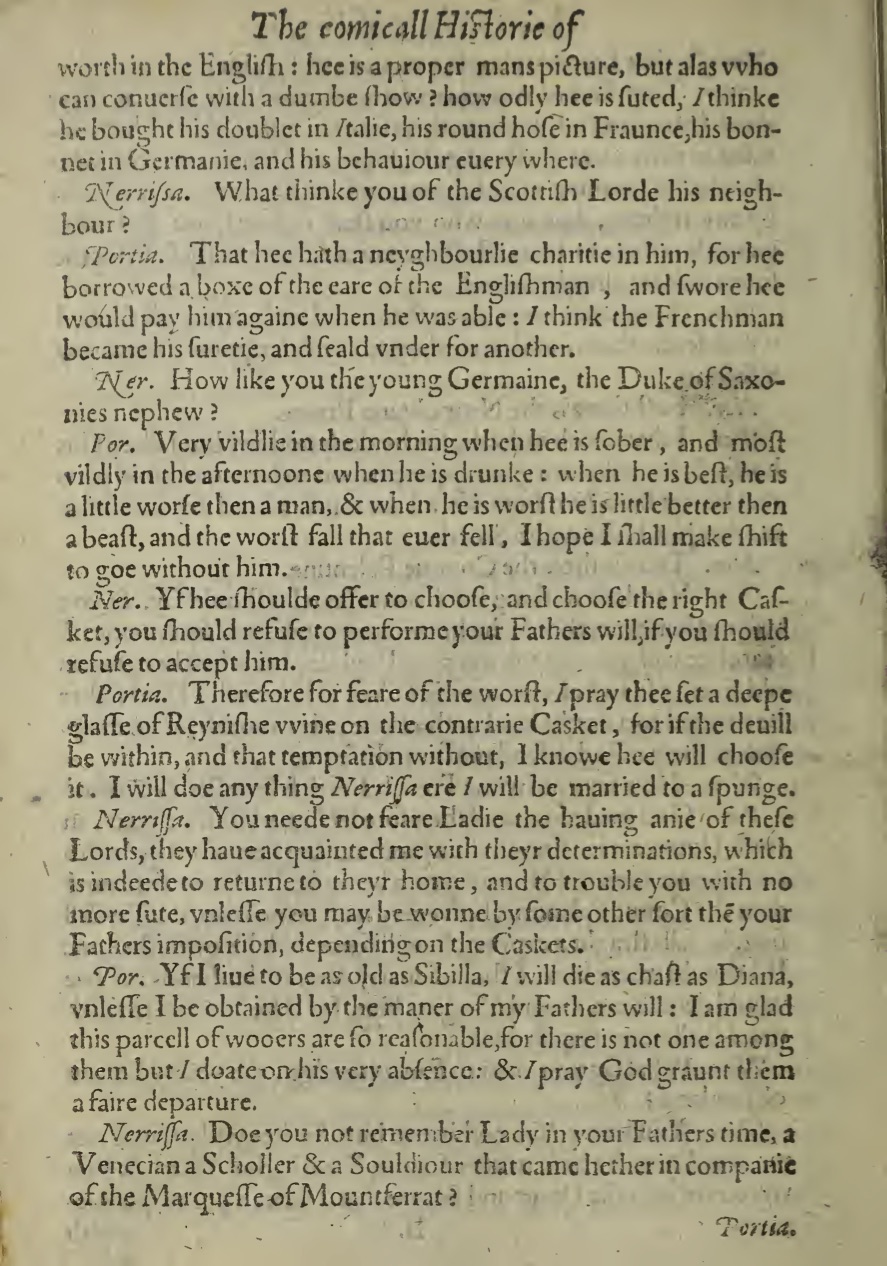worth in the English: hee is a proper masnpicture, but alas who
can converse with a dumbe show? how oddly hee is suted, I thinke
he bought his doublet in Italie, his round hose in France, his bon-
net in Germanie, and his behaviour everywhere.
Nerrisa: What thinke you of the Scottish Lorde his neigh-
bour?
Portia: That hee hath a neighbourlie charitie in him, so hee
borrowed a boxer o the are of the Englishman, and sworehee
would pay him again when he was able: I think the Frenchman
became his suretie , and deals under for another.
Nerissa: How like you the young Germaine, the Duke of Saxo-
nies nephew?
Porissa: Very wildlie in the morning when hee is sober, and most
wildly in the afternoon when he is drunk: when he is best, he is
a little worse than a man, & when he is worst he is little better then
a beast, and the worst fall that ever fell, I hope I shall make shift
to goe without him.
Nerissa: If hee should offer to choose, and choose the right Cas-
ket, you should refuse to perform your Fathers will, if you should
refuse to accept him.
Portia: Therefore for fear of the worse, I pray thee set a deepe
glasse of Reynishe wine on the contrary Casket, for if the deuill
be within, and that temptation without, I know hee will choose
it. I will doe anything Nerrissa ere I will be married to a spunge.
Nerrissa: You needed not fear Ladie the having anie of these
Lords, they have acquainted me with their determinations, which
is indeed to return to their home, and to trouble you with no
more suit, unlesse you may be wonne by some other sort than your
Fathers imposition, depending on the Caskets.
Portia: If I line to be as old as Sibilla. I will die as chast as Diana,
unlesse I be obtained by the manner of my Fathers will: I am glad
this parcell of wooers are so reasonable, for there is not one among
them but I donate on his very absence: & I pray God grant them
a fair departure.
Nerrissa: Doe you not remember Lady in your Fathers time, a
Venecian a Scholler & a Souldiour that came whether in companie
of the Marquesse of Mountserrat?
